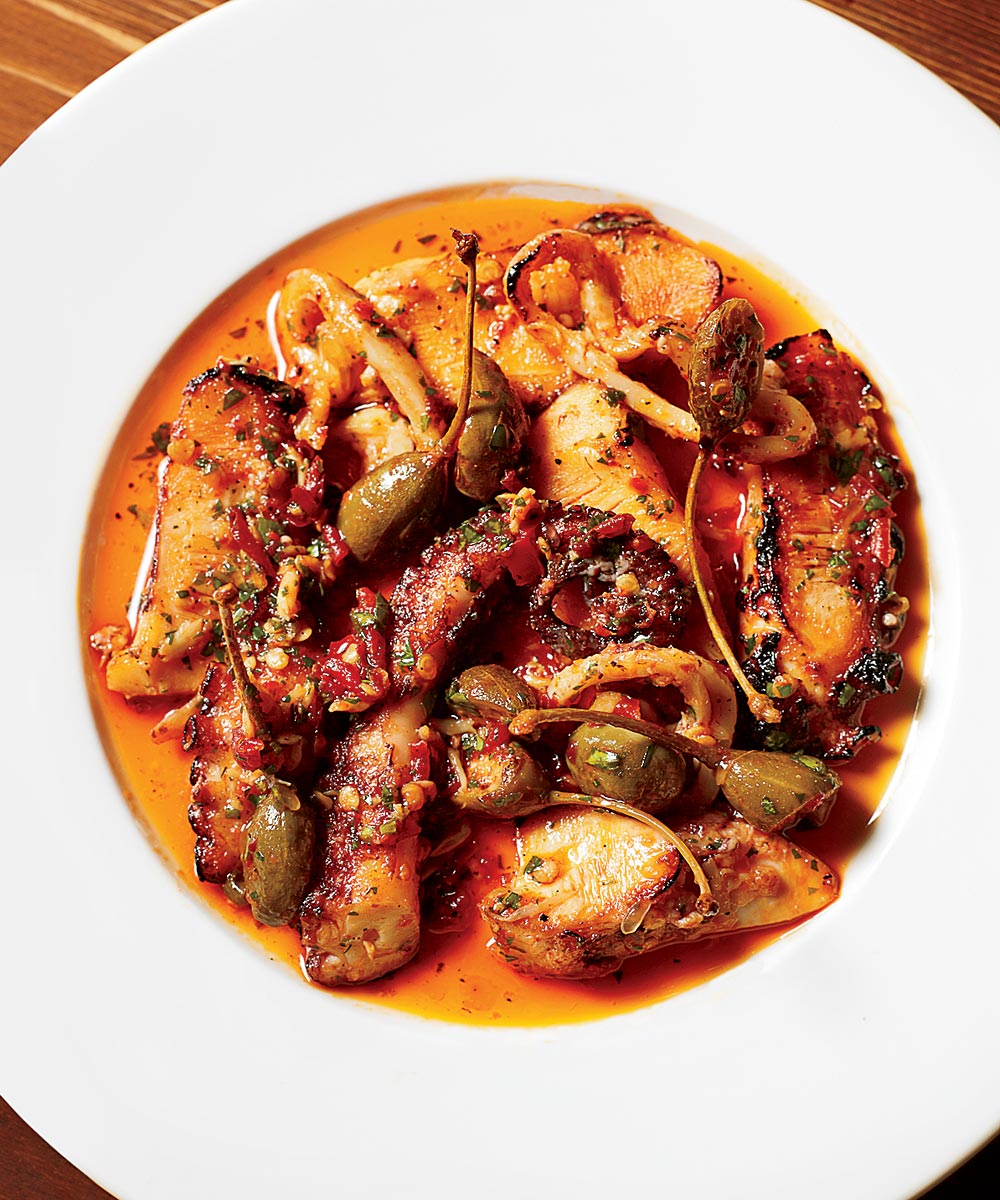To paraphrase the ancient Chinese philosopher Lao Tzu: A restaurant that knows its customers is wise, but one that knows itself is enlightened. Smart guy, that Lao, especially when you consider he couldn’t get a decent kung pao.
Brendan Sodikoff could have used him on the payroll in August 2013, when he opened Dillman’s, the upscale Jewish deli that didn’t look or act like a deli and quickly became a “deli-inspired American brasserie” and then closed. The difference between Dillman’s food quality and any other in Sodikoff’s Hogsalt family (Au Cheval, Gilt Bar, Maude’s Liquor Bar, et al.) was negligible. But the food hardly mattered because no one could explain what Dillman’s was, not even Sodikoff.
Cocello, the restaurant that replaced it, knows exactly what it is. It’s a headfirst dive into the crowded Italian crudo/pasta/seafood pool. That may sound less ambitious than boutiquifying a Jewish deli, but this concept instantly tracks. Patrons know what kind of experience to expect, and Cocello knows how to give it to them. The space looks similar to Dillman’s (and to the rest of Sodikoff’s stable): crystal chandeliers, cozy banquettes, brick walls, faux decadence. Call me crazy, but osso buco and ravioli make more sense in this environment than short rib borscht and matzo ball soup did.
While the crudos blend together into a mix-and-match game—here a yellowtail with kumquat, there a red snapper with lemon—the delicate chili-tinged rockfish with a yin of grapefruit and yang of asparagus measures up to Chicago’s finest. The real action, however, starts elsewhere. Gorgeous vegetarian possibilities line Cocello’s menu, such as a citrus salad that balances radicchio and endive with dates and chicory or a kale salad layered with sheets of pecorino and red onions. Even stronger are the antipasti, whether familiar (Roman-style artichoke with Parmesan, lemon, and chili dipping sauce) or playful (fried polenta topped with an oozing poached egg and truffle oil). And the arrosto di polpo, a wonderful tender charred octopus transformed by a fiery relish-like Calabrian chili sauce with peppers and anchovies, goes directly into the Italian food hall of fame. Ask for extra slices of doughy fennel and caraway seed bread for dipping.
Cocello’s 10 or so handmade varieties of pasta, whether al dente orecchiette with fennel sausage and kale or egg yolk raviolo drizzled with brown butter, rise high. Tight packets of ricotta gnocchi, browned on the outside and plush within, commune with pancetta, pecorino, and peas. Gorgonzola melts right into opulent risotto with buttery lardon nubs. (Avoid the clumpy tagliatelle with rabbit loin and overly lemony artichoke leaves.)
When Cocello goes whole fish, as with its turbot, you understand why chefs say the best fish is the simplest. Gently pan-fried, served with crisp capers and lemon butter, it’s flaky, fragile, and delicious. Throw in an offbeat side, such as the leafy pea tendrils seasoned with chili and lime and tossed with toasted garlic, and you’re in business. Very good business.
Desserts feel perfunctory, as though Cocello spent so much time on its cocktail program that it glossed over sweets. Fluffy zeppole that get coated with cinnamon-sugar crumble and dipped in jam and/or ricotta cream don’t make much of an impression. Then again, they don’t hurt. Two Vieux Carrés—a great heady mix of rye, Cognac, and vermouth—and you might find yourself under the table, counting the checkerboard floor tiles.
As at all Hogsalt joints, service is pleasant and smart . . . but here, it’s also needy. One waiter asked six times how my party liked everything—beats getting neglected, but if I wanted insecure, I would reconnect with various ex-girlfriends. Perhaps the staff still suffers from post-Dillman’s stress disorder. Regardless, Cocello represents a savvy rebound.



